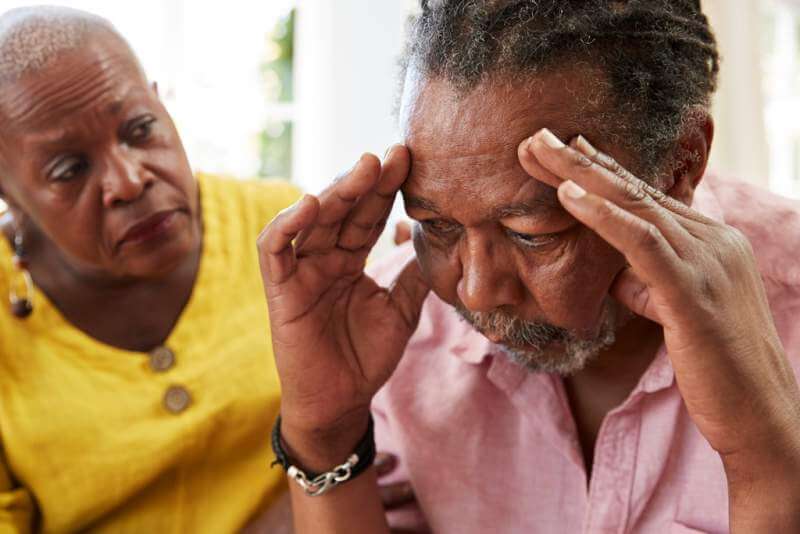Everyone has their good and bad days. There are times when you experience grief, sadness, and stress. You may feel overwhelmed with work or other problems that may lead to a feeling of burnout, exhaustion, and at times, loneliness. These feelings may be natural; however, there are instances when these feelings can affect your mental health. They may take over your life, causing you to lose your interest in your daily activities. You may lack the enthusiasm you have for life. You may need to watch out for warning signs that may indicate that you need to pay attention to your mental well-being.
Causes of Mental Health Problems
 Many events or incidents trigger mental health problems. They can start at an early age, or they may be developed later in life. Knowing the cause of mental health problems can help address the issues properly. Some of the most common reasons why people develop mental health conditions include:
Many events or incidents trigger mental health problems. They can start at an early age, or they may be developed later in life. Knowing the cause of mental health problems can help address the issues properly. Some of the most common reasons why people develop mental health conditions include:
- Biology – Neurotransmitters are responsible for helping the brain’s nerve cells communicate. If there is any hormonal imbalance in the brain, it prevents neurotransmitters from doing their job. As a result, signs of mental illnesses may manifest.
- Genetics – Mental health illnesses can be hereditary. Your genes may play a significant role in your condition because some of them may run in the family. However, if your parents or other relatives have a mental disorder, it doesn’t mean that you will automatically develop a mental illness. It indicates that you’re more at risk of developing one compared to others whose family members don’t have a mental illness.
- Trauma – People who experienced physical and psychological abuse may develop mental health problems because of the pain and stress that they had to go through. Those who were physically and emotionally abused may still experience the trauma even if the abuse stopped. It can affect how they interact with others.
- Other causes – A sudden change in a person’s life can affect his or her mental health. It may be due to a loss of a loved one, divorce, unhealthy family life, alcohol or drug abuse, or a sudden change in a person’s lifestyle. If the person is not prepared for these changes, he or she can develop mental health problems.
Signs of Mental Health Problems
 Most signs of mental health issues may seem ordinary. Some may even resemble typical behaviors such as the inability to sleep or withdrawal from social gatherings. However, if these signs happen too often, they may be due to a more severe condition. You need to watch out for these warning signs that may indicate you need help with your mental problem:
Most signs of mental health issues may seem ordinary. Some may even resemble typical behaviors such as the inability to sleep or withdrawal from social gatherings. However, if these signs happen too often, they may be due to a more severe condition. You need to watch out for these warning signs that may indicate you need help with your mental problem:
- You have a hard time sleeping: Studies have associated lack of sleep with depression. Insomnia is often considered as a critical sign of clinical depression. Sleep helps in restoring and healing the body. If you have trouble sleeping, you tend to build up tension, irritability, and stress that often leads to mental health conditions.
- You feel sad, tired, or anxious all of the time. It’s normal to feel sad or anxious at times. However, if this is chronic, it may be a warning sign that you already have a mental health problem. Constantly feeling sad, down, or tired are some of the symptoms that you’re depressed.
- You have mood swings. Drastic or erratic changes in your mood can affect how you interact with other people. It can also be a sign of mental health issues. You may have bipolar disorder or borderline personality disorder.
- You’re withdrawing yourself from other people. Isolating yourself from the people around you can also be a sign of severe mental health issues. If you are not interacting with your family, you may experience a strong sense of loneliness and sadness that may lead to depression and other mental problems.
- You have a hard time recovering from a traumatic event. A traumatic event is difficult to deal with even if it is already in the past. However, if you are still struggling with facing what happened to you, it may be time to see a professional.
- You’re abusing alcohol or drugs. Turning to alcohol or drugs to numb the emotional pain you feel is a red flag for problems related to mental health. You turn to narcotics and liquor to experience some form of happiness but eventually return to your current state once you are sober.
- You are contemplating on taking your life. Suicide is never a joke. Once the thought of taking your own life occurs to you, you need to seek help immediately. You can talk to your family or a close friend about it. They may offer their support; however, it is still best to find medical help when you’re already thinking of suicide.
How to Cope with Mental Health Problems
 You need to remember that you’re not alone. You can try a variety of ways to battle your mental health illnesses. You can cope with your problems by:
You need to remember that you’re not alone. You can try a variety of ways to battle your mental health illnesses. You can cope with your problems by:
- Accepting your condition: Denial will only prevent you from taking the necessary treatment or help you need to battle your mental problem. Instead, you must accept your state and find ways to prevent it from taking over your life.
- Getting professional help: Reaching out to professional help such as a psychiatrist or psychologist such as Endeavour Wellness can help you start your recovery journey. These professionals can aid you in battling your mental condition. They can provide treatments and medication so you can manage your illness and eventually recover from it.
- Interacting with others: Isolating yourself from other people will only aggravate your condition. You need to know that you are not alone in your battle. You have your family and friends to turn to for support.
If you don’t have the right support system, you may have a hard time coping with your mental health issues. You need to surround yourself with people who can influence you to do better and recover from your illness. Always think positive and concentrate on the good points of your life. The road to recovery may be hard and may take a long while but what is important is that you’re on that road and you’re willing to get better.
About Author – Joel Curtis
 Joel Curtis is a registered Psychologists with Endeavour Wellness and has over 17 years of experience. Joel holds a Masters’ Degree in Psychology from Western Sydney University. Joel owns a number of private practices in Sydney and provides expert content for several national TV and Radio programmes.
Joel Curtis is a registered Psychologists with Endeavour Wellness and has over 17 years of experience. Joel holds a Masters’ Degree in Psychology from Western Sydney University. Joel owns a number of private practices in Sydney and provides expert content for several national TV and Radio programmes.
